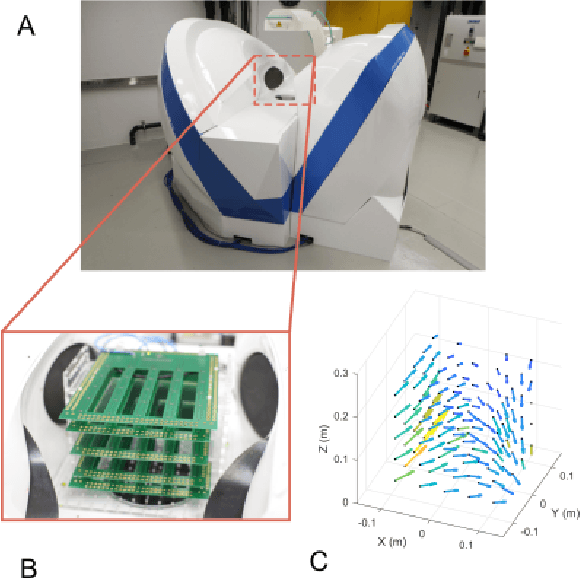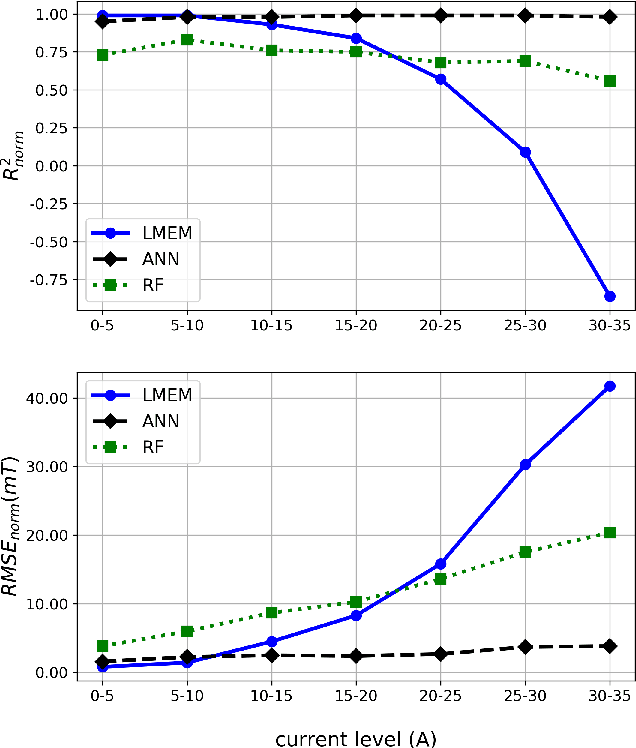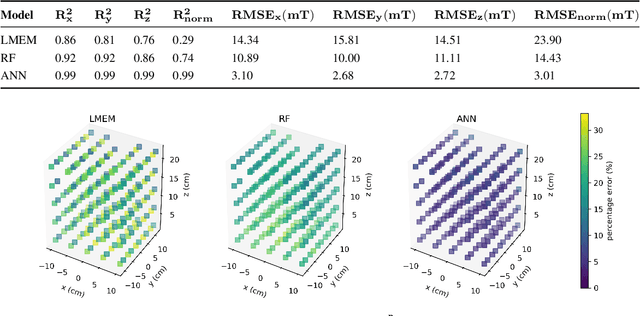Modeling Electromagnetic Navigation Systems for Medical Applications using Random Forests and Artificial Neural Networks
Paper and Code
Sep 26, 2019



Electromagnetic Navigation Systems (eMNS) can be used to control a variety of multiscale devices within the human body for remote surgery. Accurate modeling of the magnetic fields generated by the electromagnets of an eMNS is crucial for the precise control of these devices. Existing methods assume a linear behavior of these systems, leading to significant modeling errors within nonlinear regions exhibited at higher magnetic fields. In this paper, we use a random forest (RF) and an artificial neural network (ANN) to model the nonlinear behavior of the magnetic fields generated by an eMNS. Both machine learning methods outperformed the state-of-the-art linear multipole electromagnet method (LMEM). The RF and the ANN model reduced the root mean squared error of the LMEM when predicting the field magnitude by around 40% and 80%, respectively, over the entire current range of the eMNS. At high current regions, especially between 30 and 35 A, the field-magnitude RMSE improvement of the ANN model over the LMEM was over 35 mT. This study demonstrates the feasibility of using machine learning methods to model an eMNS for medical applications, and its ability to account for complex nonlinear behavior at high currents. The use of machine learning thus shows promise for improving surgical procedures that use magnetic navigation.
 Add to Chrome
Add to Chrome Add to Firefox
Add to Firefox Add to Edge
Add to Edge